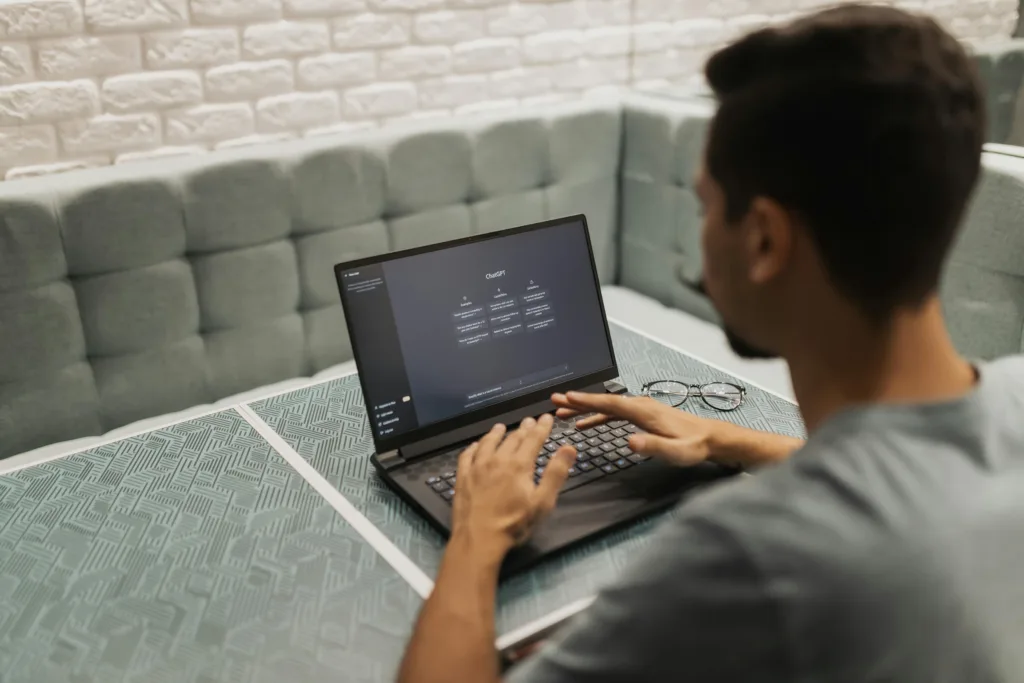
Microsoft’s announcement of a brand-new class of AI-capable personal computers highlights the company’s dedication to include cutting-edge technology throughout its range of products.
This new category helps Microsoft’s endeavors and puts it in a direct competitive position against AI-driven innovations from tech behemoths like Apple and Alphabet. Chief Executive Officer Satya Nadella introduced the Copilot+ PCs at a gathering at Microsoft’s Redmond, Washington, headquarters. These laptops were created in partnership with manufacturers such as Acer and Asustek Computer, and their release coincides with Microsoft’s stock price approaching all-time highs due to Wall Street’s belief that artificial intelligence could dramatically increase profits for large tech companies.
By managing a larger portion of AI tasks locally, these PCs lessen their dependency on cloud data centers. The gadgets, which start at $1,000, will be shipped on June 18. The portfolio consists of two laptops from Microsoft itself, along with laptops from well-known manufacturers like Dell Technologies, HP, and Samsung Electronics.
Product offerings and technological advancements
Microsoft’s first-ever Copilot+ device, the Surface Laptop, has a Qualcomm Snapdragon X series system-on-a-chip. This chip has an integrated AI accelerator that can process information at a rate of up to 45 tera operations per second (TOPS). These laptops, which come in 13.5- and 15-inch versions, have up to 64 gigabytes of RAM and 1 terabyte of flash storage.
The new Copilot+ edition of the Surface Pro, a flexible two-in-one computer, has joined the Surface Laptop. With the Flex Keyboard—a detachable keyboard that doubles as a wireless connector and stylus charger for the Surface Pro—this 10.6-inch tablet may be used as a laptop.
The Snapdragon X processor, which comes with up to 32 gigabytes of RAM and one terabyte of storage, powers both the Surface Laptop and Surface Pro. The premium variants have an OLED display, which greatly improves visual quality.
“Recall,” a unique feature of the Copilot+ series, enables the device to log all user activity, including voice chats and online browsing, and save this data locally. Users can use a searchable history created by this functionality to go back and review previous actions, even months later.
During the press conference, Microsoft’s head of consumer marketing, Yusuf Mehdi, declared that the company plans to sell 50 million AI PCs this year. He emphasized that customers will be strongly persuaded to upgrade by the improved capabilities of AI assistants, which are now functioning directly on these PCs.
According to Gartner, there was a 15% decrease in worldwide PC shipments in 2018, but Microsoft remains upbeat about the potential market share for its Copilot+ PCs.
“People just need to be convinced that the device experience alone justifies this entire new category of Copilot+ machines,” said Creative Strategies analyst Ben Bajarin.
Following Intel’s 2011 strategy of introducing the “Ultrabook” to rival Apple’s MacBook Air, Microsoft’s launch of the “Copilot+” category is set to completely reshape the market for Windows laptops that are thin and light.
Microsoft also said that Copilot will soon incorporate GPT-4o, the most recent development from OpenAI’s ChatGPT. Additionally, Qualcomm chips based on Arm Holdings’ designs will be used in the upcoming line of Surface Pro tablets and Surface laptops. Prism, an innovative technology, will be used to modify software meant for AMD and Intel processors to run on Arm-based systems.
Microsoft recently demonstrated how its new devices—which run Adobe photo editing software—outperformed an Apple device, just weeks after Apple unveiled a new AI-focused CPU that is anticipated to improve laptops in the future.
Opportunities and challenges in the changing PC industry
Microsoft is still in the lead when it comes to incorporating the newest AI technologies into consumer goods, despite fierce competition in the traditional PC industry. Driven by its collaboration with OpenAI, this strategic endeavor endeavors to establish a dominant market position in the intensely competitive artificial intelligence sector, confronting competitors such as Alphabet.
New AI technologies for voice-responsive, real-time interactions were just unveiled by Alphabet’s Google and OpenAI last week, setting new standards for AI voice assistants. Apple, whose proprietary Arm-based CPUs have raised the bar for performance and battery life, is putting further pressure on Windows PC makers in the meantime.







